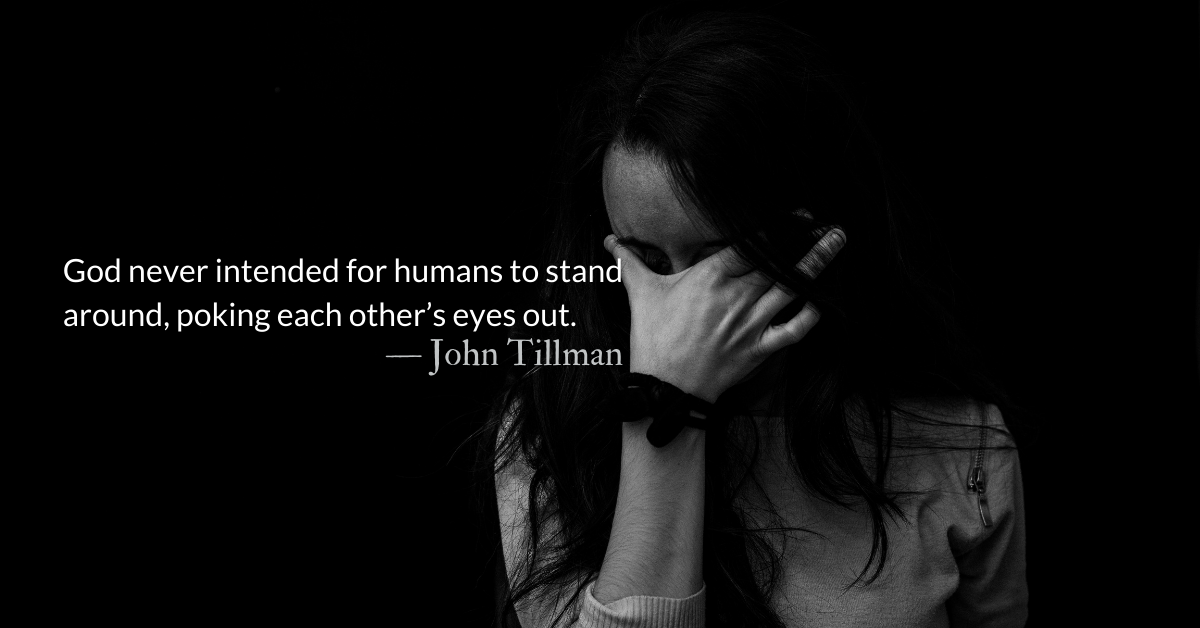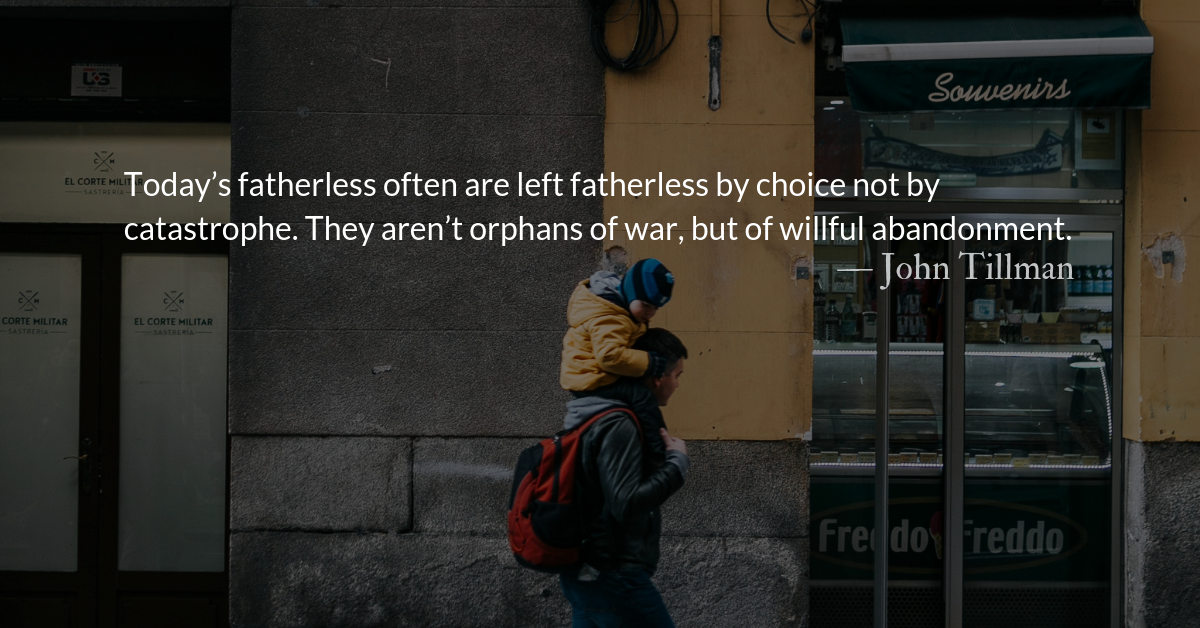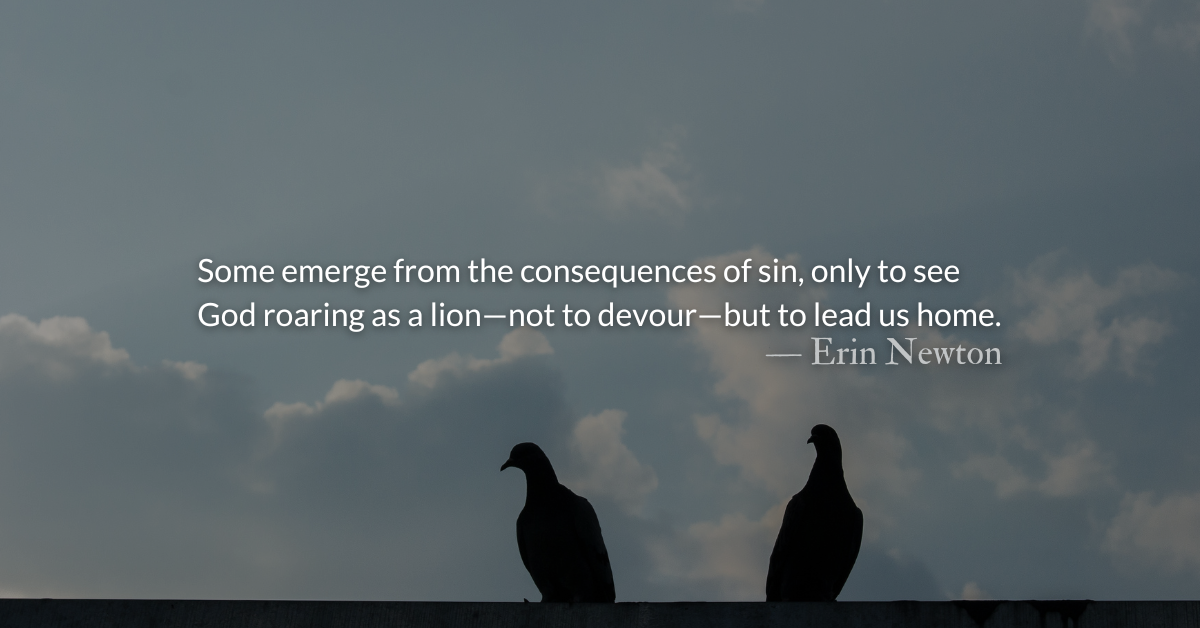Scripture Focus: Psalm 109.16-20
16 For he never thought of doing a kindness,
but hounded to death the poor
and the needy and the brokenhearted.
17 He loved to pronounce a curse—
may it come back on him.
He found no pleasure in blessing—
may it be far from him.
18 He wore cursing as his garment;
it entered into his body like water,
into his bones like oil.
19 May it be like a cloak wrapped about him,
like a belt tied forever around him.
20 May this be the Lord’s payment to my accusers,
to those who speak evil of me.
Reflection: Revenge to Redemption
By John Tillman
Vengeful-sounding songs in the Bible make some people uncomfortable but we seem comfortable with revenge songs in general. Many genres have them but perhaps the most famous ones come from American Country music. If you’ve ever heard a crowd begin shout-singing along to, “I dug my keys into the side of his pretty, little, souped-up, four-wheel drive…” (Before He Cheats — Carrie Underwood) you’ve glimpsed the gusto with which our hearts cry for even a semblance of justice.
True justice eludes most revenge songs. They celebrate revenge in justice’s absence. When there is no justice, revenge is what we settle for. If we don’t trust in God, revenge may be all we think there is to justice.
David trusts God and cries out for vengeance from God’s hand, not his own hand. David’s curses are requests for God to act and he draws a contrast between himself and his accuser. His adversary loves pronouncing curses. He hounds the poor to harm them, not to bless them, wearing curses like a garment.
Like David’s adversary, our culture proudly wears the garment of cursing others, blaming them, doxxing them, pursuing them to exhaustion, destruction, or even their death. These curses seep into our hearts. The spirit of our age is one of wrath and revenge. The Spirit of Christ is one of radical redemption.
This past Monday, we read one of several “eye for an eye” passages in the Law. Despite how some people interpret these passages, God never intended for humans to stand around, poking each other’s eyes out. “Eye for an eye” and the Golden Rule aren’t in conflict, but cooperation. They are two sides of the same coin. Reactive justice points to preemptive grace.
Imperfect forms of human justice may involve doing to others what was done to you. Jesus comes to complete and perfect that law with something better: doing to others what you wish would be done to you.
We can still pray with imprecatorial honesty, crying out for justice, not just for ourselves but for all pursued and crushed by evil.
Our cries will be answered by Jesus, the one to whom all judgment is entrusted by the Father. In him alone all harm will be healed and all evil destroyed. All evil and lies will be cut down. Jesus alone can turn revenge into redemption.
Music: “Better tell that long-tongued liar…
Tell ‘em that God’s gonna cut ‘em down.”
— Johnny Cash (God’s Gonna Cut You Down — Video)
Divine Hours Prayer: The Greeting
In you, O Lord, have I taken refuge; let me never be put to shame; deliver me in your righteousness. — Psalm 31.1
– Divine Hours prayers from The Divine Hours: Prayers for Springtime by Phyllis Tickle
Today’s Readings
Deuteronomy 21 (Listen – 3:33)
Psalm 108-109 (Listen – 4:28)
Read more about Abandon Human Vengeance
In a culture in which vengeance drives a machine of violent rhetoric which leads to physical violence, Christians have a responsibility to break the machine.
Read more about The Maddest Prophet, The Saddest Prophet
Jonah doesn’t want a savior. He wants a weapon. God will not be made into a tool for us to destroy our enemies.








